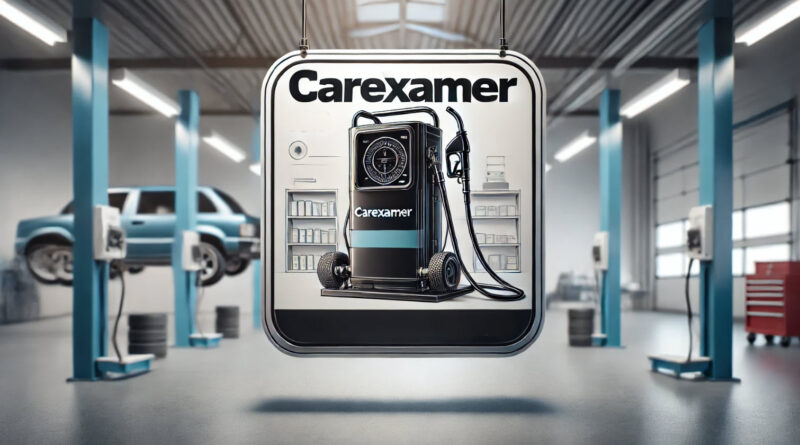Car Fuel Pumps: Why They’re On Your Car
Here’s what you need to know about car fuel pumps how it works, what can go wrong, and how to keep it in great shape. When you think about what keeps your car running smoothly, a fuel pump probably isn’t the first thing that comes to mind. But without this small yet mighty component, your car wouldn’t go anywhere. The fuel pump is like the heart of your car’s fuel system, making sure the engine gets the fuel it needs to perform. Whether you’re driving a petrol, diesel, hybrid, or even some electric vehicles with range extenders, the fuel pump is working hard behind the scenes.
What Is a Fuel Pump, and What Does It Do?
A fuel pump is responsible for moving fuel from your car’s tank to the engine. It ensures the fuel gets there at the right pressure so the engine can do its job. There are two main types of fuel pumps:
- Mechanical Pumps: Found in older cars, these are engine-driven and work well for simpler systems but provide lower pressure.
- Electric Pumps: Standard in modern vehicles, they’re powered by electricity and deliver higher, more consistent pressure for today’s advanced engines.
Without a working fuel pump, your car simply won’t run.
How Does a Fuel Pump Work?
The process is straightforward yet vital. Here’s how it happens:
- Drawing Fuel: The pump pulls fuel from the tank using a pickup tube.
- Pressurizing: It pressurizes the fuel to ensure smooth delivery.
- Delivering: The fuel travels through lines to reach the engine, where it powers combustion.
- Regulating Pressure: A fuel pressure regulator ensures the flow stays steady, no matter the driving conditions.
It’s a small part of your car’s system, but it plays a big role in keeping everything running efficiently.
How Do You Know if Your Fuel Pump Is Failing?
When a fuel pump starts to fail, your car will give you signs. Here are some common red flags to watch for:
1. Sputtering Engine
If your car feels like it’s losing power at high speeds, it could mean the pump isn’t delivering fuel consistently.
2. Hard Starts
Struggling to start your car? A weak pump may not be providing enough fuel to get the engine going.
3. Loss of Power
If your car struggles during acceleration, uphill drives, or when carrying heavy loads, the pump might not be able to keep up with demand.
4. Stalling
Sudden stalling, especially when the car is warm, is another telltale sign.
5. Strange Noises
A whining or buzzing sound from the fuel tank could mean the pump is struggling or nearing the end of its life.
If you notice these symptoms, it’s time to have your car checked.
Why Do Fuel Pumps Fail?
Fuel pumps are built to last, but they’re not invincible. Here are the most common reasons they break down:
- Clogged Filters: Dirt and debris in the fuel can clog the system, making the pump work harder.
- Electrical Problems: Faulty wiring or loose connections can disrupt the pump’s function.
- Running on Empty: Driving with a nearly empty tank can cause the pump to overheat, as fuel also acts as a coolant.
- Age and Wear: Over time, parts naturally wear out and stop working efficiently.
How to Keep Your Fuel Pump Healthy
A little maintenance goes a long way in extending the life of your fuel pump. Here’s what you can do:
1. Keep Your Tank Full
Try not to let your fuel level drop too low. Running on fumes can strain the pump and cause it to overheat.
2. Use Quality Fuel
Cheap or contaminated fuel can introduce debris into your system. Stick to reputable stations to keep your pump and engine clean.
3. Replace the Fuel Filter
A clogged filter forces the pump to work harder, so replacing it as recommended by your car’s manufacturer can prevent unnecessary stress.
4. Schedule Regular Inspections
Have your fuel system checked during routine maintenance to catch issues early.
What Happens If Your Fuel Pump Fails?
If your fuel pump completely gives out, your car won’t start or run. Replacing it can be expensive—anywhere from £150 to £800 depending on your car’s make and model.
While some DIYers might attempt a replacement, it’s often best to leave it to a professional mechanic to avoid complications. If your car starts showing signs of pump trouble, don’t wait too long to address it—prompt repairs can save you from being stranded.
The Role of Fuel Pumps in the Future
As the automotive world shifts towards electric vehicles (EVs), you might wonder if fuel pumps will become obsolete. The answer? Not quite yet.
- For Hybrids: Many hybrids still rely on fuel pumps to power their internal combustion engines.
- For Range Extenders: EVs with range-extending engines also use fuel pumps to keep their generators running.
While their role is evolving, fuel pumps remain essential in most vehicles on the road today.
Final Thoughts
Your car’s fuel pump may not get the spotlight, but it’s a vital player in keeping your vehicle running smoothly. By knowing the signs of trouble and taking simple steps to maintain it, you can avoid costly breakdowns and ensure your car stays reliable.
Whether you’re driving an older model or a cutting-edge hybrid, taking care of your fuel pump is one of the easiest ways to keep your car happy and on the move. After all, it’s the unsung hero of your car’s fuel system—and it deserves a little love.
Buying a used VW. Buying used vauxhall, BMW, Jaguar, Ford, Volvo, Range rover, Bentley, Aston Martin, Porsche, Ferrari, Lamborghini, Maserati, Hyundai, Tesla, Honda, Pagani

